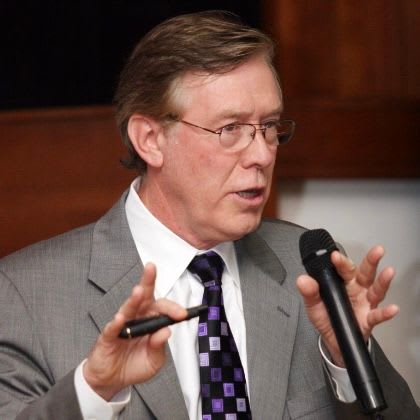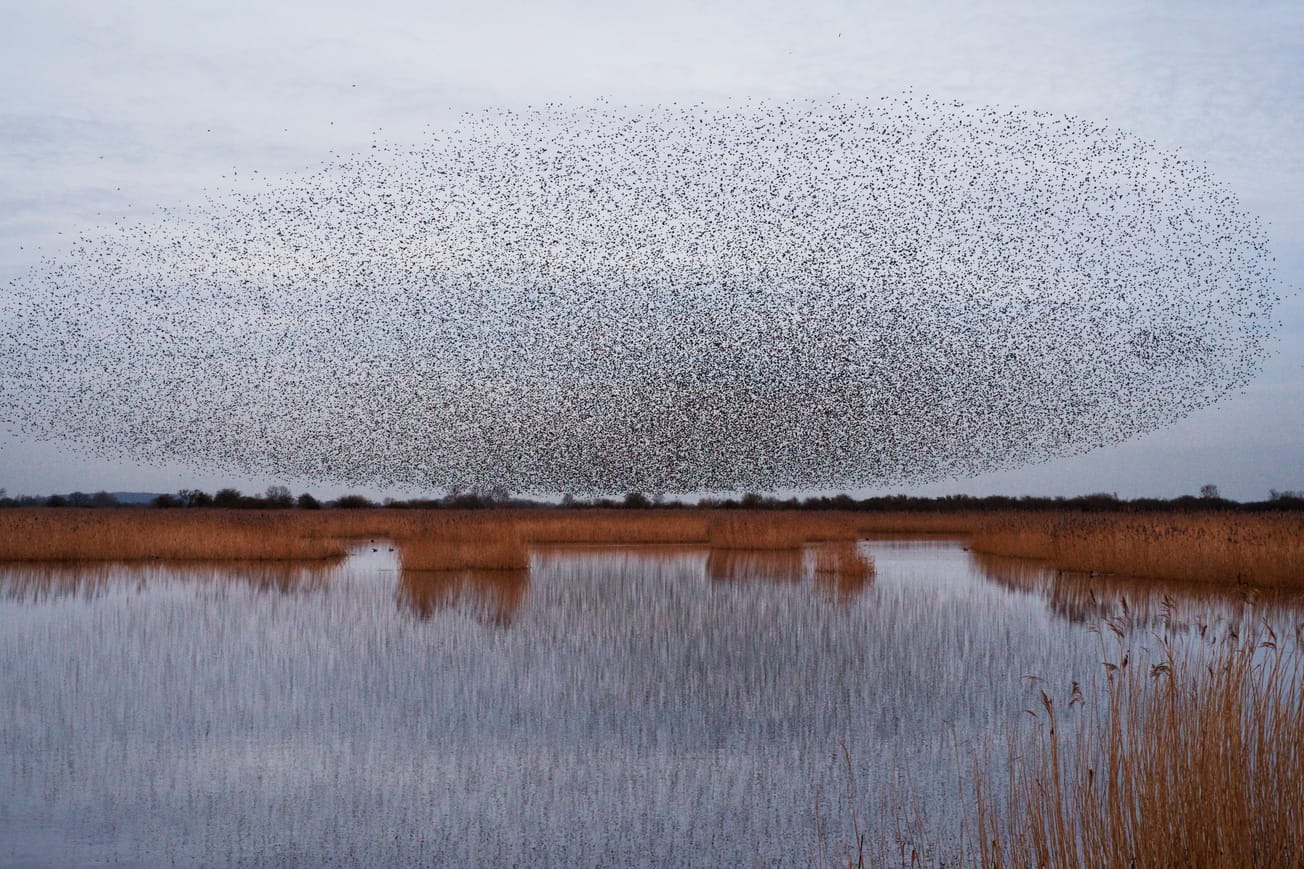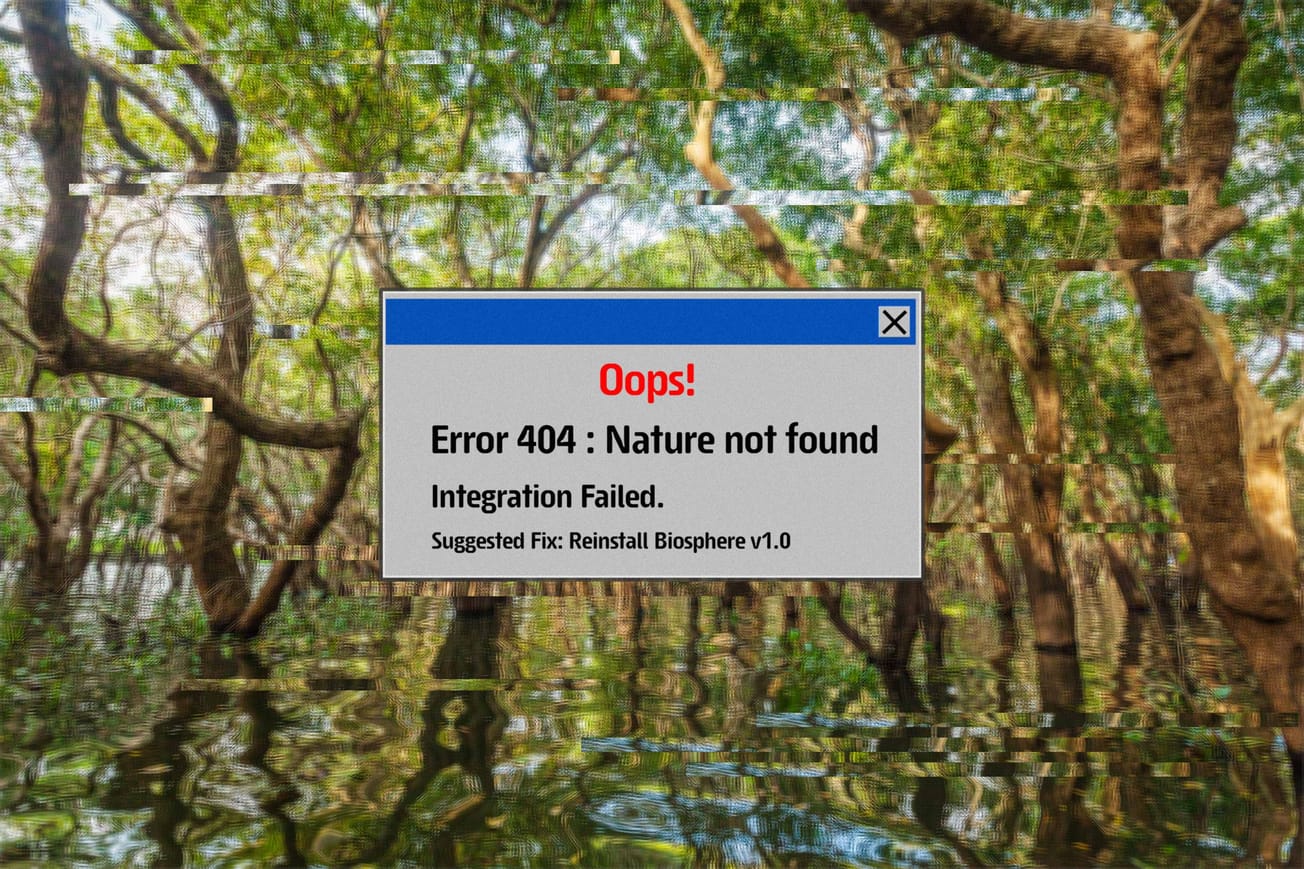When President Trump assumed office in January 2025, among his earliest acts was the deliberate dismantling of environmental protections carefully built over decades. These actions weren't simply isolated decisions driven by economic strategy or regulatory philosophy—they were the initial strikes in a far more consequential battle: a systematic assault on truth and reality itself.
Trump's environmental deregulation and rejection of climate science extend far beyond pleasing industry donors or dismantling his predecessor's accomplishments. They embody something far more troubling: a calculated effort to construct an alternate reality in which facts become flexible, science is reduced to mere opinion, and truth itself is defined solely by those in power—in this case, Trump himself.
This troubling pattern goes far beyond environmental policy alone. From rewriting American history in museums to systematically undermining democratic institutions, to exhibiting increasingly autocratic behaviors, Trump is orchestrating a deliberate, comprehensive campaign to reshape reality according to his personal vision. The consequences of this campaign are profoundly serious—not merely for environmental protection but for the core principles underpinning American democracy itself.
In what EPA Administrator Lee Zeldin proudly proclaimed as "the most consequential day of deregulation in U.S. history," the Trump administration aggressively dismantled environmental safeguards painstakingly developed over decades. But make no mistake: these aren't mere policy adjustments. They represent a calculated assault on our fundamental right to understand and respond to environmental threats—an assault designed to blind us to the damage unfolding around us, leaving Trump’s narrative as the only version of reality.
Consider the EPA's decision to dismantle critical greenhouse gas reporting requirements. Since 2010, roughly 8,000 industrial facilities across the country have transparently disclosed their emissions each year, providing essential data to inform environmental protections and public awareness. Under Trump's latest rule, however, just a quarter of those facilities will continue this essential reporting, and even those may be temporary. This action goes far beyond mere deregulation: it represents a calculated effort to keep the public in the dark, ensuring the administration’s narrative remains the dominant, and often only, authoritative voice on environmental realities. By restricting access to crucial emissions data, the Trump administration deliberately weakens accountability, stifles informed decision-making, and dangerously obscures the true scale of environmental harm, ultimately jeopardizing public health and ecological sustainability.
"It would be a bit like unplugging the equipment that monitors the vital signs of a patient that is critically ill," explained Edward Maibach, a professor at George Mason University. Without this data, we can't track emissions, hold polluters accountable, or develop effective climate policies.
The Trump administration has systematically dismantled critical environmental protections, rolling back dozens of regulations designed to limit emissions from power plants and vehicles, safeguard wastewater standards, and ensure clean air quality. Perhaps most alarmingly, they've even shuttered the EPA's environmental justice offices, turning their backs on communities already suffering the worst effects of pollution.
What's particularly concerning is the influence behind these decisions. Many of the administration's political appointees spearheading this aggressive deregulation previously served as lobbyists for the very industries they're now tasked with regulating. This is more than a simple conflict of interest, it's an outright takeover of environmental oversight by polluters themselves, deliberately undermining the integrity of the system meant to protect public health and safety.
If weakening environmental safeguards represents the first stage of Trump's broader assault on reality, his next step has been actively denying climate science itself. The administration isn't merely neglecting climate change; they're intentionally erasing it from public discourse and constructing a parallel reality in which climate change either doesn't exist or is falsely portrayed as beneficial. This dangerous rewriting of reality isn't just irresponsible—it's a deliberate effort to mislead the public, sabotage informed policy-making, and imperil our collective future.
Among Trump's most troubling actions was his decision to eliminate funding for the U.S. Global Change Research Program (USGCRP), an essential initiative coordinating federal climate research since 1989. The USGCRP has been responsible for producing the National Climate Assessment, America’s definitive scientific resource on the impacts of climate change. Without this vital program, we lose our primary means of understanding climate threats facing our nation.
At the same time, the administration has silenced government scientists by preventing them from participating in critical international climate panels and systematically removing climate information from federal websites. Renowned climate scientist Dr. Michael Mann aptly summarized this disturbing strategy: "It's as if they're attempting to erase climate change itself by deleting it from our collective consciousness." This deliberate erasure is not merely misguided—it actively sabotages public understanding and threatens our ability to effectively confront one of the greatest challenges of our time.
Even more alarming are the administration's plans to publish official government reports falsely asserting that global warming is beneficial to humanity. This dangerous narrative directly echoes Trump's own misguided statements claiming carbon dioxide is "not an evil gas" but rather "beneficial to life on Earth," a severe distortion of scientific reality. Such claims blatantly ignore the catastrophic impacts rapid climate change poses to ecosystems, communities, and global stability.
President Trump's assault on truth extends far beyond climate science; it represents a broader campaign to dominate public discourse across all facets of American life. From undermining scientific consensus to rewriting historical narratives, the administration seeks to control the cultural information landscape, shaping it to fit a singular, politically motivated perspective. President Trump's recent executive order, "Restoring Truth and Sanity to American History," represents a calculated effort to reshape public understanding of the nation's past. By directing Vice President J.D. Vance to oversee the removal of what the administration deems "improper ideology" from Smithsonian exhibits, the order targets institutions like the National Museum of African American History and Culture and the American Women's History Museum.
By attempting to dictate the content of cultural and educational institutions, the administration undermines the principles of academic freedom and intellectual inquiry, posing a significant threat to democratic discourse and the nation's commitment to a truthful and inclusive historical record.
This strategy mirrors tactics employed by authoritarian regimes, where controlling the narrative becomes a means to consolidate power and suppress dissent. By systematically eroding trust in independent institutions and promoting alternative facts, the administration is not just challenging specific policies or viewpoints, it is threatening the very foundation of informed democratic debate. Recognizing and resisting this manipulation is crucial to preserving the integrity of public discourse and the democratic principles it supports.
This isn't merely about statues or museum displays; it's fundamentally about who holds power over the narrative of American history. By whitewashing historical realities and silencing essential conversations about racism, Trump is deliberately crafting a sanitized, politically convenient version of the past—one designed explicitly to reinforce his political agenda and erase inconvenient truths from public consciousness.
President Trump's recent actions against law firms and universities that have opposed or criticized him signal another troubling shift toward authoritarianism. For instance, his administration has openly targeted law firms like Perkins Coie, which represented Democratic clients involved in litigation against him, threatening investigations and regulatory retaliation. Additionally, universities such as Harvard, Yale and University of California have faced Justice Department scrutiny and threats of funding withdrawal under claims of ideological bias and unfair admissions policies, conveniently aligning with Trump's broader political grievances. By systematically penalizing institutions simply because they exercise their right to legal representation or academic freedom, the administration is purposively undermining core principles of free speech and the rule of law. This pattern of intimidation sets a dangerous precedent, steering the United States toward a political climate in which disagreement with presidential views becomes grounds for governmental persecution.
In a troubling escalation of the Trump administration's approach to dissent, Secretary of State Marco Rubio has declared that individuals can be deported based on their "past, current, or expected beliefs, statements, or associations"—even when those expressions are protected by law. This position effectively grants the government an omnipotent level of authority, including the presumed ability to predict future speech and preemptively declare it grounds for removal. The case of Mahmoud Khalil illustrates this policy in action. Despite being a lawful U.S. permanent resident and Columbia University graduate student, Khalil was arrested and detained without criminal charges. The government cited his participation in pro-Palestinian activism as justification for deportation, claiming it could cause "potentially serious adverse foreign policy consequences." This precedent transforms constitutionally protected political expression into deportable offenses, creating a chilling effect on free speech and establishing a dangerous framework where lawful political advocacy becomes grounds for expulsion from the country.
Moreover, the administration's actions have not been limited to non-citizens. Reports have surfaced of U.S. citizens being detained and, in some cases, deported due to administrative errors or perceived political opposition. Such incidents underscore a broader erosion of civil liberties, where the mechanisms of state power are increasingly employed to suppress dissent and punish those who challenge the administration's narratives.
Trump's assault on reality strikes at the very heart of American democracy itself. By systematically eroding trust in democratic institutions, he is actively constructing a power dynamic where his personal narrative supersedes objective truth, endangering the foundations on which American democracy stands. The Brookings Institution has highlighted "dangerous cracks" appearing in the pillars of U.S. democracy, especially in critical areas: protecting free and fair elections, upholding the rule of law, and fighting governmental corruption. Trump's actions have directly undermined each of these pillars.
The President’s unprecedented use of executive orders has aggressively expanded presidential authority, asserting control over traditionally independent entities such as the Federal Election Commission. By suspending vital voting protections designed to increase ballot access and baselessly accusing political rivals of election interference, Trump has damaged public confidence in democratic processes. Perhaps most disturbingly, his decision to pardon individuals convicted of violently attacking the U.S. Capitol on January 6, 2021, sends a chilling message that loyalty to him outweighs commitment to the rule of law itself. These actions represent not just political maneuvers but a profound threat to the democratic integrity of the United States.
The justice system has become a primary target in Trump's relentless campaign to reshape American democracy. He has systematically purged the Department of Justice, installing loyalists at the helm of crucial institutions like the FBI and the military, and instructing prosecutors to drop corruption charges against his political allies. When judges dare to rule against him, Trump publicly vilifies them as "radical left lunatics" deserving of impeachment, while his supporters openly suggest defying judicial orders altogether.
President Trump's recent executive order directing the Justice Department to investigate former administration officials Chris Krebs and Miles Taylor—individuals who have publicly criticized him—signals a deeply troubling shift toward authoritarian governance. This action, coupled with the administration's use of expedited deportations without due process, sets a dangerous precedent that threatens the constitutional rights of all U.S. citizens. By targeting dissenters and circumventing legal safeguards, the administration is effectively dismantling the protections that prevent governmental overreach and abuse of power. Such measures not only intimidate those who might oppose the president but also erode the foundational principles of accountability and transparency. If left unchecked, this trajectory will ultimately lead to a police state where expressing dissent, or merely being perceived as oppositional, subjects individuals to the risk of persecution and detention.
These actions are not isolated incidents or mere political maneuvers; they form a deliberate, interconnected strategy. Trump's systematic dismantling of environmental protections, aggressive denial of climate science, revisionist approach to American history, and persistent attacks on democratic institutions collectively represent an authoritarian campaign designed to reshape public perception and erode individual empowerment by sowing doubt and distrust. This pattern of behavior reveals a dangerous truth: Trump's ultimate objective extends beyond policy changes—it aims to undermine democratic accountability, consolidating power by distorting reality and weakening the institutions that uphold truth and justice.
By dismantling environmental oversight, Trump deliberately blinds us to the reality of pollution. By denying and undermining climate science, he systematically erodes trust in scientific authority. By rewriting American history, he asserts control over how we interpret our collective past. And by weakening democratic institutions, he removes the vital checks and balances that could challenge or restrain his constructed alternative reality.
Experts have cautioned that America is "sleepwalking into authoritarianism," with the most insidious threat arising from the subtlety of Trump's actions. Each individual measure may appear incremental—insufficient on its own to provoke widespread alarm—but collectively, these measures amount to a profound and existential threat to the very foundations of American democracy. We cannot afford complacency. It is essential that we recognize and respond to these systematic attacks on truth, accountability, and democratic governance before it becomes too late.
Scholars have raised alarms about the erosion of democratic norms under Trump's leadership. Harvard political scientists Steven Levitsky and Daniel Ziblatt, in their book How Democracies Die, argue that democracies often collapse not through sudden coups but via the gradual weakening of institutions and norms by elected leaders. They warn that Trump's actions—such as undermining the judiciary, attacking the press, and questioning the legitimacy of elections—mirror tactics used by autocrats to consolidate power. Similarly, Yale historian Timothy Snyder has highlighted the dangers of "anticipatory obedience," where citizens preemptively conform to authoritarian expectations, thereby facilitating the erosion of democratic freedoms. These expert analyses underscore the urgent need to remain vigilant and actively defend democratic institutions against encroachments that, while seemingly minor in isolation, collectively pose a significant threat to the republic
The stakes are profoundly clear: when a leader persuades his supporters to dismiss scientific realities about climate change, it opens the door to rejecting all inconvenient truths—including election results and even the legitimacy of the Constitution itself. Only by understanding these connections—that environmental deregulation is just one piece of a larger, systematic assault on reality—can we grasp the full extent of this danger. To effectively counter this threat and uphold the democratic values that have defined America for nearly 250 years, we must first clearly recognize and decisively respond to this ongoing attack on truth itself.












